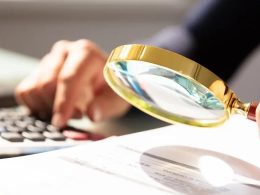 Dennis Gartman discussed the significance of the euro/yen cross to world markets, gold, China, real estate and the economy, with Bloomberg's Tom Keene and Ken Prewitt, May 26, 2010.
Dennis Gartman discussed the significance of the euro/yen cross to world markets, gold, China, real estate and the economy, with Bloomberg's Tom Keene and Ken Prewitt, May 26, 2010.
The main underlying point Gartman made is that the euro/yen cross serves as a reliable indicator of the direction of risk in markets, i.e. "Risk ON" or "Risk OFF." A falling euro/yen cross indicates a withdrawal from risk trades (increased risk aversion, weaker markets), and a rising euro/yen cross indicates a extension of risk trades (increased risk taking, stronger markets). For this reason, it is worth keeping an eye on.
Below is the transcript of the interview.
(This is not a legal transcript. Bloomberg LP cannot guarantee its accuracy.)
Dennis Gartman, Economist at Gartman Letter LC, talks to Tom Keene and Ken Prewitt about the Euro-Yen
May 26, 2010
SPEAKERS: DENNIS GARTMAN, ECONOMIST, GARTMAN LETTER LC, TOM KEENE, EDITOR-AT-LARGE, BLOOMBERG NEWS KEN PREWITT, HOST, BLOOMBERG NEWS
07:20
TOM KEENE, EDITOR-AT-LARGE, BLOOMBERG NEWS: He's just come back from board meetings at North Carolina State, where they will be in the Big Four next year in basketball. We welcome, Dennis Gartman. Mr. Gartman, good morning.
DENNIS GARTMAN, ECONOMIST, GARTMAN LETTER LC: Good morning, Ken, how are you?
Keene: Well, we're very, very good. Let's talk Euro-Yen. You and I love it equally. I would say technically it is incredibly well contained. Is Euro-Yen about a stronger Yen, or is it about a weaker Euro?
Gartman: Yes.
Keene: That was a good answer.
KEN PREWITT, HOST, BLOOMBERG NEWS: Yes, I liked that.
Gartman: It is about a stronger Yen. It is about a weaker Euro. It is about a stronger Yen, which quite honestly makes very little sense other than people unwinding carry trades and it is about a weaker Euro, which does indeed make sense as I think the Euro, the European Monetary Union has been splintering apart, the cloth, I like to say of the Union has been torn. And I'm not sure that they'll be able to sew it back together.
Keene: All right.
Prewitt: Dennis, you keep an eye on Mrs. Watanabe. First, who is that and second what's she up too?
Gartman: Well, Mrs. Watanabe is Mrs. Smith here in the United States. It's whom I refer to as the average Japanese investor and quite honestly, one, she's getting quite old; two, she's a bit confused and three, she'd moved a great good deal of her money offshore because rates in Japan for so long had been very, very low, lower than any place else in the world almost near zero where everyone else has followed. And I think Mrs. Watanabe is probably still confused. What's really happening is the hue, the larger institutional investors who had used the Yen as their borrowing weapon and had made trades abroad were either -
Keene: Right.
Gartman: - were probably unwinding massive carry trades that they had put on over the course of many years.
Keene: Dennis, in a minute here, I want to come back and talk about your terrific gold call. But in a minute here, I get so many emails that say, Tom, why do you care about Euro-Yen? Why does Dennis Gartman watch Euro-Yen?
Gartman: I watch Euro-Yen because I think it's the temperature of the global capital market generally. As that cross gets stronger, it means money is being borrowed in Japan and put to work abroad, which is an element of risk being put on as that cross goes down. It means risk is being taken off the table. It's really a very good thermometer, a health gauge of the health of the global capital market.












